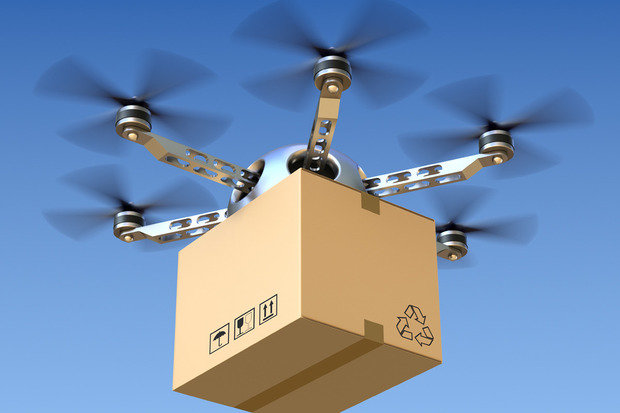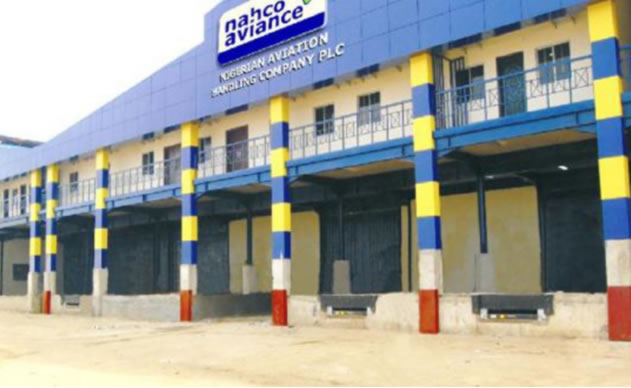18 months ago, in June 2015, whilst the rest of the country was still caught up in the euphoria of a newly elected government, we published an article on how small businesses in Nigeria could leverage the technology driving the ” On Demand Economy “ to either start a private enterprise or improve their existing businesses.
The underlying themes of the previous article were as follows
- Do NOT wait for government’s help before starting your private business
- Start earning your own income, ideally in foreign currency by taking advantage of the opportunities presented by the global village
- Persistent and continuous advances in technology means that it should no longer cost small businesses an arm and a leg to startup and operate successfully.
Adopting these themes, leaves CEOs with more time to execute on their business plans. Interestingly, a recent Wall Street Journal article “growth in tiny businesses” provides further reading for those so inclined.
In keeping with our theme of “Technology as an enabler for small businesses” we take a look at 6 major costs incurred by Nigerian SMEs.
Specifically, how current and emerging technologies for 2017 can facilitate operational efficiency and cost optimization for Nigerian SMEs.
(1) Staffing Costs:
A major component of any SME’s expenditure is labour costs. This includes staffing costs for technical (core) staff, as well as, support (non-core) staff.
At this stage, everyone should be fairly familiar with the benefits of outsourcing. For small businesses, the ability to outsource non-core functions remains key. Functions such as secretarial, accounting, bookkeeping, data entry, payroll staff remain prime areas for outsourcing to a virtual assistant.
However, a more exciting and emerging trend is the use of robotics in delivering outsourced services. Specifically, repetitive tasks which are mundane and of limited value are simply automated and delegated to intelligent computers. (you have probably heard of AI….but that is a much broader topic)
The increasing integration of robotics in the workplace is anticipated to yield significant benefits to SMEs such as dramatic reduction in labour costs, increased precision from robotics will help ensure consistency of outcome, furthermore SMEs can also enjoy labor flexibility which robotics offers (i.e. with robotics there are no unions, no strikes and no demand for increased wages etc).
For SMEs looking to reduce labour costs, a lot of thought should be given to which staff are core to your business’ operation vs. staff performing non-core mundane tasks which could be outsourced to reduce labour costs.
(2) Communication costs:
In recent years, sole dependency on fixed landline telephones continues to dissipate. With the advent of VOIP services, we have seen an exponential growth in the availability of applications and equipment with technology to make and receive audio/video calls over the internet. Furthermore, the integration of VOIP technology within social media applications (Facebook calls, Whatsapp calls etc) means VOIP as a medium of communication now almost ubiquitous.
In addition to VOIP for audio calls, applications now exist to facilitate email/written correspondence for businesses (unsurprisingly, Gmail makes the list). Video calling as a service is becoming as prevalent as audio calling. This Video calling functionality means face-to-face meetings no longer have to be in-person. Periscope (2015) Facebook Live (2016), Whatsapp Video calls (2016), were all launched in the past 24 months. This is in addition to traditional providers of meeting services such as GoTo meeting.
This increased use of apps for business communication, is driving an emerging trend called BYOD (Bring Your Own Device) where employees bring their privately owned compatible devices to work and have the appropriate communication applications installed.
The rapid decline in data costs (i.e. data usage, data storage and data transfer) means that there are more technological advances to come.
Imagine that in 1980, 1GB of data storage cost was over $400,000. This same 1GB can now be stored for less than $0.10. Think back to the days when it was novel to see a 1GigaByte hard disk, now 1 TeraByte hard disks are easily available.
What is my point?
In summary, for Nigerian SMEs, if you are still incurring significant amount of expenses on fixed line telephones, or paying huge amounts for employee handsets (such as blackberry, pagers etc) then you really need to take a strong look at the opportunity costs of that cash outlay on unnecessary communication expenses.
SMEs, startups and aspiring entrepreneurs no longer need to experience long waits to have your fixed landline installed or face exorbitant costs simply to communicate with staff or customers.
Additionally, to facilitate face-to-face meetings, SMEs no longer need to incur significant cash outlays on flight tickets to provide your clients with more frequent product updates. Please note that this doesn’t mean SMEs don’t need to undertake business trips, it just means the trips need not be as frequent due to the alternatives now available for Audio, Video, Written communication.
(3) Materials Costs:
As previously mentioned, robotics and Artificial Intelligence (AI) can help reduce staff costs, whilst creating operational efficiency. These benefits also apply to costs of direct materials. Specifically, the ability to leverage the increased precision which robotics offers to reduce production wastage, is a no brainer.
Furthermore, increased use of robotics can help drive just in time (JIT) production methods with associated benefits on operating costs and margins.
In addition to robotics, an emerging technology of interest is 3D printing. What has 3D printing got to do with Nigerian SMEs? Let’s provide some context.
Currently when Nigerian SME manufacturers need a new batch of production parts, they typically expect to go through the following steps,
1) Firstly the SME has to identify the parts required,
2) Then figure out the exact dimensions required,
3) Then establish which supplier carries the desired parts in its inventory,
4) Then place an order for those parts
5) Then deal with all the logistical hassle of importing and clearing (via Nigerian customs)
6) Then after clearing, the SME needs to transport the goods to the warehouse (via Nigerian Roads and in contact with the various agencies plying our roads)
To avoid the hassle of repeating steps 1 to 5 above, SMEs sometimes order more production parts than immediately required (i.e. SMEs occasionally order production parts “just in case”). This means incurring storage costs, as well as, opportunity costs for cash outlay.
Now imagine if after all that, the parts ordered arrive late and/or neither function as expected nor is fit for purpose? God bless
The deployment of 3D printing largely eliminates all that logistical nightmare and dramatically reduces cost inefficiencies.
From a small business perspective, the application of 3D printing is limitless.
- Think SME Beverage companies who need to order empty bottles for their products,
- Food sellers who need to order packaging for their products, and
- Assembly companies who need to import production parts etc.
Bottle production, Food packaging, assembly parts molding can all potentially be delivered using 3D printers. Depending on business requirements, costs for 3D printers range from N150,000 up, although the HP Jet Fusion 3D Printer is amazing.
(4) Entertainment Subscriptions:
This is specifically targeted at those businesses (Hotels, Restaurants, Clubs etc) who have to keep clients entertained thus have to subscribe to TV, Cable, Satellite Dish, Internet etc.
We previously mentioned how the persistent and rapid decline in data costs provides opportunities to address Communication costs for SMEs.
Notably, the emerging trend of on-demand entertainment packages such as Netflix, Sling TV, Amazon, HBO, YouTube Roku, Hulu, Sky etc) is also driven by trend in data costs.
Arguably, there are very few global entertainment networks who do not offer catchup TV programs for users own time and convenience. Typically, these on-demand services are available at a fraction of the costs for traditional full-service package.
Therefore, unless you have an insatiable desire for Live TV broadcasts, it will be worth exploring how to leverage on-demand subscriptions to lower your business’ entertainment subscription costs.
As an example, DSTV’s popular package will set an SME back N63,100 (i.e. N19,900 for setup and N43,200 in subscription based on N3,600 per month). However, web streaming from You Tube is free. If you really want to get more streaming services, you can always get the Roku or Amazon Fire Stick.
NB: Even for Live TV sporting broadcasts, Twitter and Facebook plan to offer streaming
(5) Payments
For Nigerian businesses who have international partners, one can easily appreciate the level of frustration experienced in recent times with seamlessly making payments overseas (courtesy of the rules and restrictions being deployed by the CBN and FG).
In addition, there are also exorbitant costs of making those transfers at Nigerian banks. Some banks charge up to N105 per transfer (phew!!).
An emerging trend in the payments industry is the use of digital coins to facilitate settlement. There are various digital coins in circulation but the most popular and widely accepted is Bitcoin.
Note that the popularity of Bitcoin is transient at this stage, pending further developments by central banks.
The key is to leveraging digital coins for payments is to determine what digital coin your international partner/service provider is willing to accept. There are several lists of merchants accepting Bitcoins globally. So, this is somewhat easy to research.
Once you have established what digital coins your trading partners accept, feel free to setup your digital wallet and purchase the required amounts for your transaction.
From your digital wallet, you can either pay your supplier or exchange the coins for USD.
There are cons to holding digital coins as a financial asset. However, the benefits of using digital coins include timely payments for goods and services (subject to participating merchants), as well as, lower costs of transfers.
Yep that’s right, in some cases there is NO transfer cost when paying someone using a digital currency.
(6) Energy Costs:
How can Nigerian SMEs take advantage of all these opportunities being provided by technology when power generation capabilities remain only a fraction of the nation’s energy requirements?
This brings us to one of the more exciting emerging trends in technology. Specifically, the emerging trend towards decentralized power generation and consumption.
For Nigerian SMEs, this means pivoting towards renewable energy and/or Independent Power Plants (IPPs).
With regards to renewable energy (specifically SOLAR energy),
Unit costs of solar energy across the world continues to decline rapidly from $77 in 1970s to less than $0.50 (50 cents) in 2016
Additionally, PV cells are becoming much more efficient (i.e. modern smaller sized PV cells can generate similar or more power than older versions of PV cells. Thus, less space required to install powerful solar energy equipment.
An analogy for this development would be the residential satellite dishes which progressed from the ultra large satellite dishes of yesteryear mounted in spacious gardens compared to satellite dishes of today.
Bloomberg New Energy Finance (BNEF) initiative recently announced a major milestone The increasing commercial viability of alternative energy means advanced countries can set aggressive targets…..UK (15%), Germany (18%), whilst the Asian majors (China and India) can confidently commit to a global initiative COP21
At the Corporate level, GOOGLE recently committed to offsetting 100% of its fossil fuel consumption with alternative energy.
In Africa, we see countries such as Morocco committing to large-scale deployment of land to generate solar energy (target for NOOR is for 580 Mega Watts annually once completed).
All this means that the per unit cost of solar energy is forecast to continue to decline.
In Nigeria, the use of inverters and batteries are now more prevalent in our major cities, thus more businesses are rapidly becoming self-sufficient in generating energy for their basic operations.
The benefit of this emerging trend in renewable energy is clearly that businesses, by installing solar panels and batteries, can continue to operate with less dependence on erratic sources of power supply (GENCOs/DISCOs), as well as, interruptions caused by scarcity of fossil fuels (PMS & Diesel).
In conclusion, for each of the major costs incurred by Nigerian SMEs, recent advances in technology continue to provide innovative CEOs with opportunities to improve their business’ operations, whilst reducing costs and enhancing profit margins.
The greatest thing about these opportunities is that they are devoid of any need to ask government for help.
Good luck, let us know of other areas where you feel advances in technology has helped reduce business costs.




















